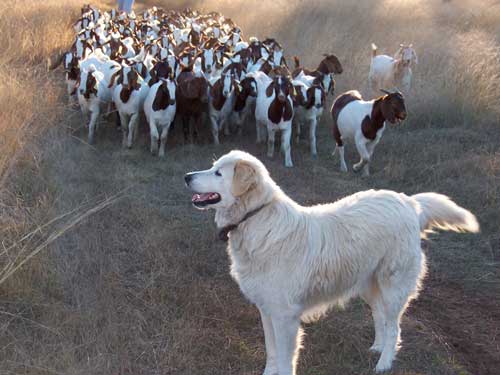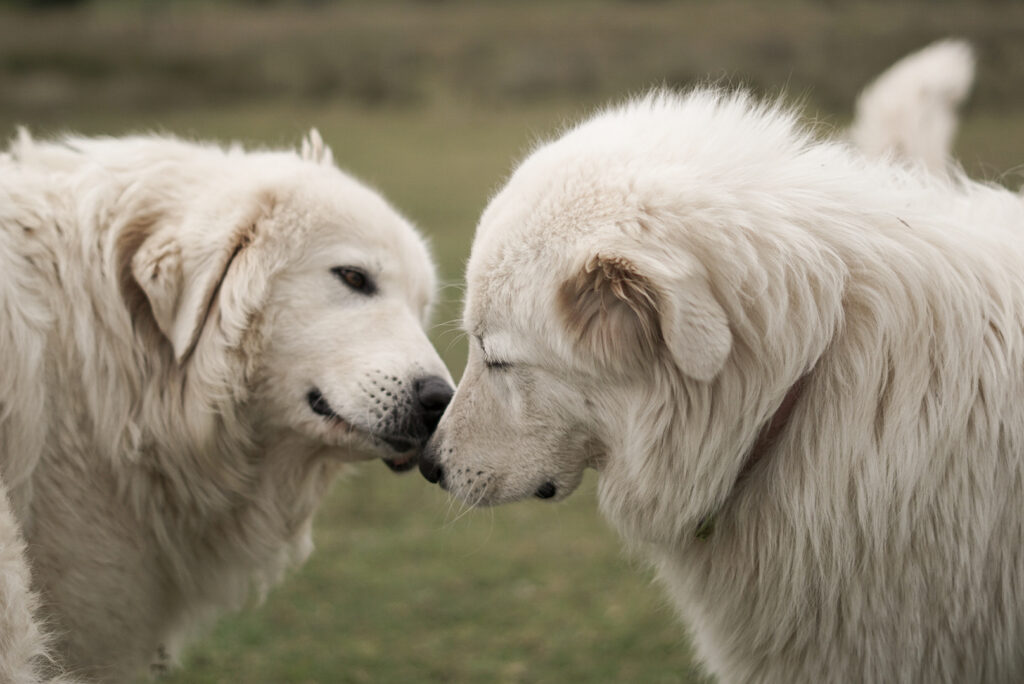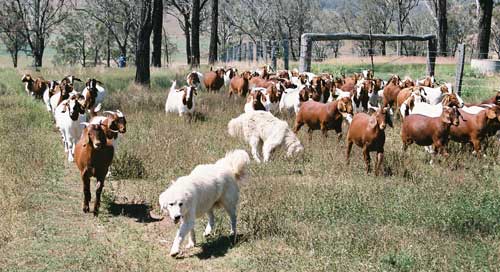Goat Management
Breeding
In the earlier years of the stud’s operation, embryo transfer programs were implemented annually. The programs allowed the breeding of significantly larger numbers of quality Boer goats, than would have been possible by natural means. As stud doe numbers increased over the years, the reliance on artificial breeding was no longer necessary. However, artificial insemination can be incorporated when required.
Currently, the stud relies on the natural breeding of the goats in single sire mating paddocks. Single sire matings are allowed for a six week period in the Autumn, when goats are naturally at their breeding peak. This involves drafting the breeding does (minimum of 18 months of age) into several groups, the selection of the appropriate sire to mate each group, and the placement of each group into an individual paddock. Subsequently, as the kids are born, they are ear tagged and recorded exactly according to their dam, and the sire that the dam was mated to in the Autumn.
After weaning, three to four months later, the lesser male kids are culled, and the remainder of the kid crop is allowed to grow out naturally before initial selections are performed from five months of age.
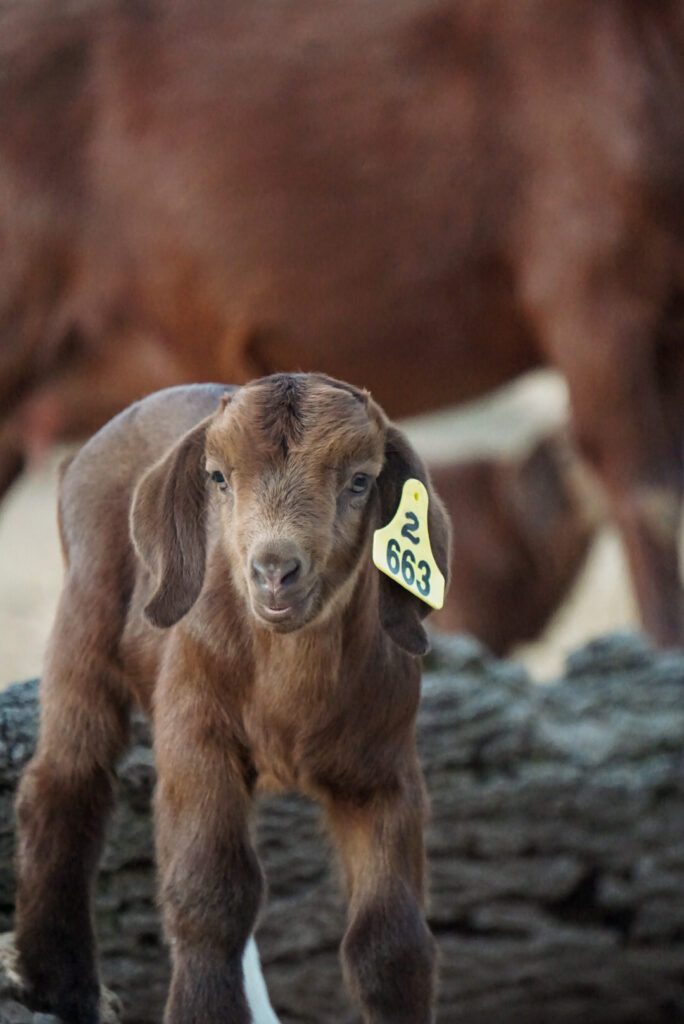
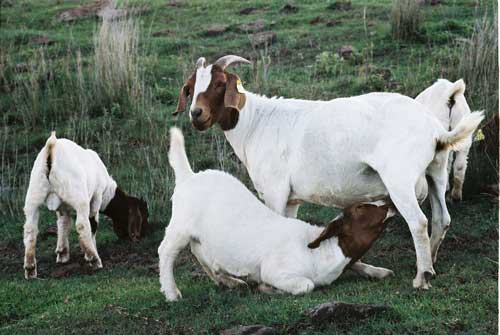
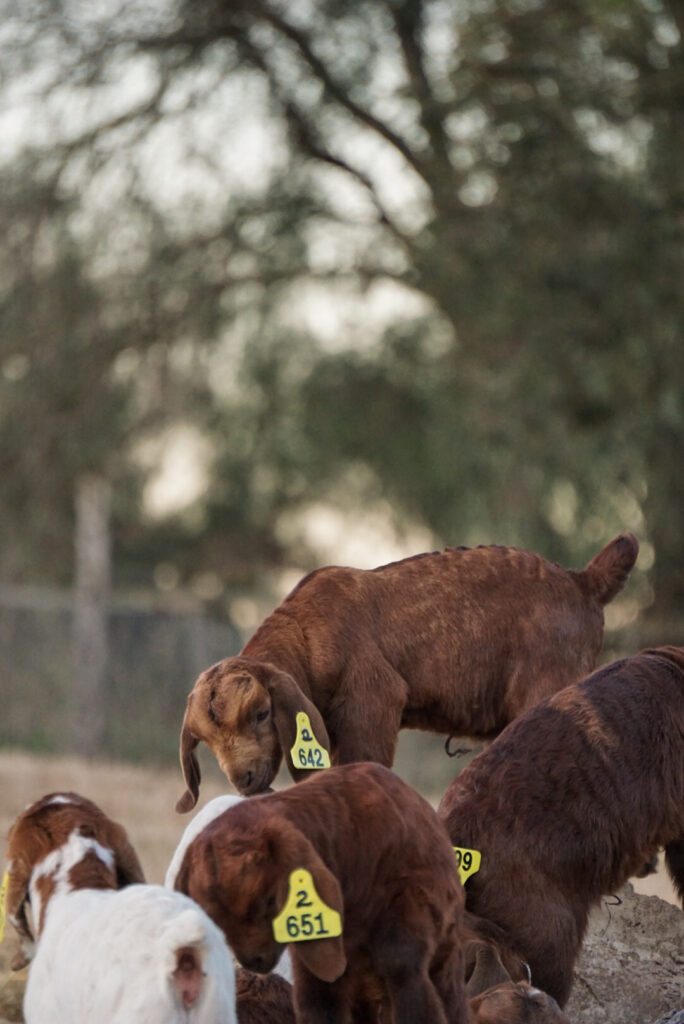
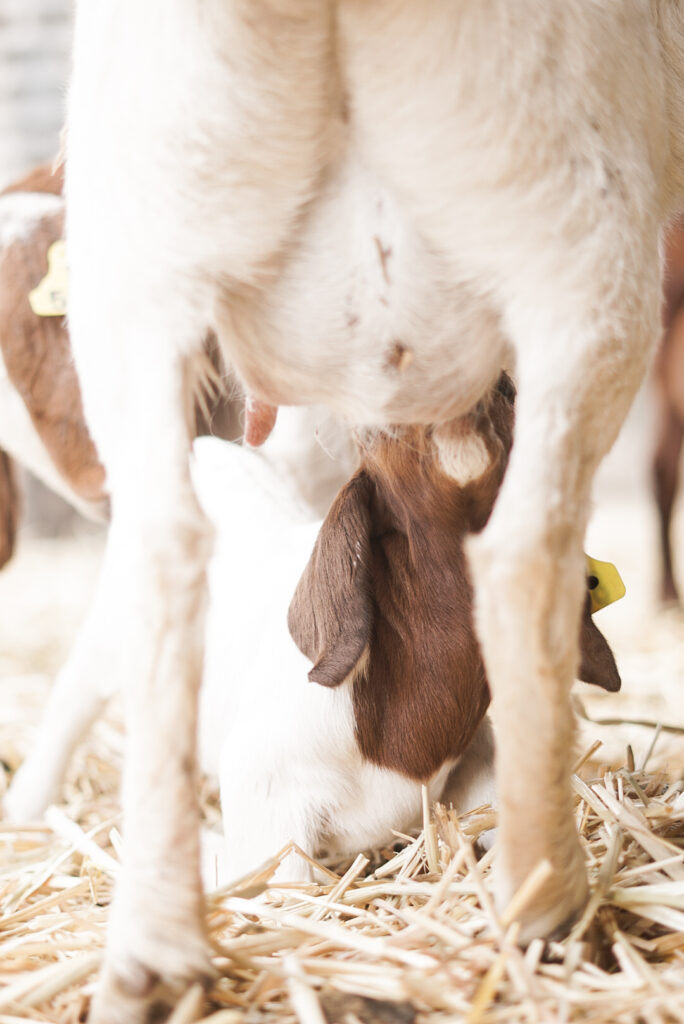
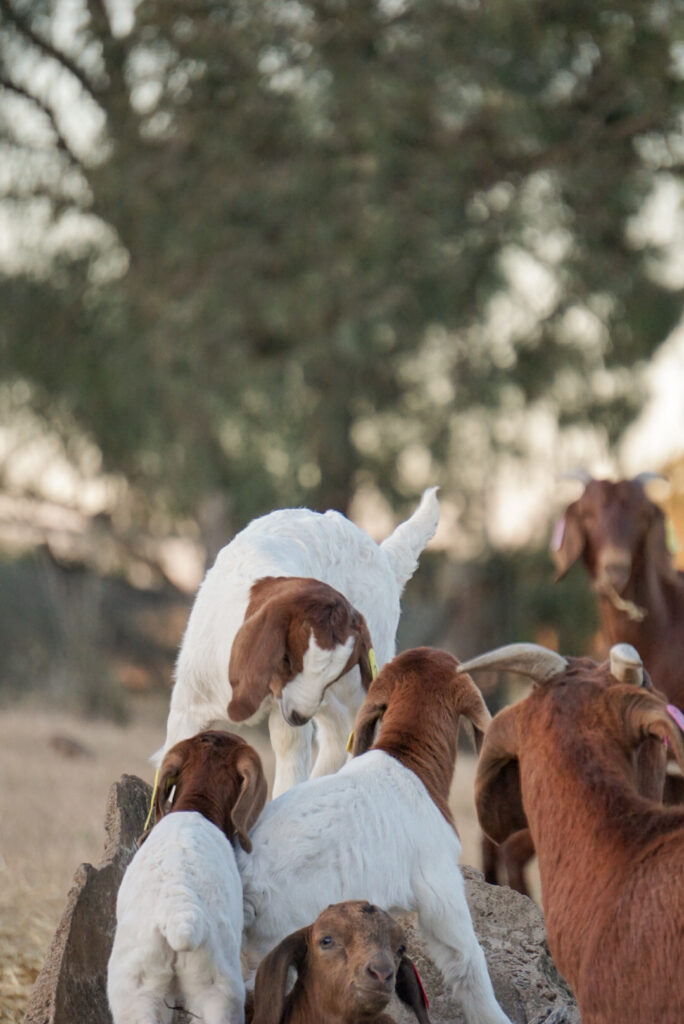
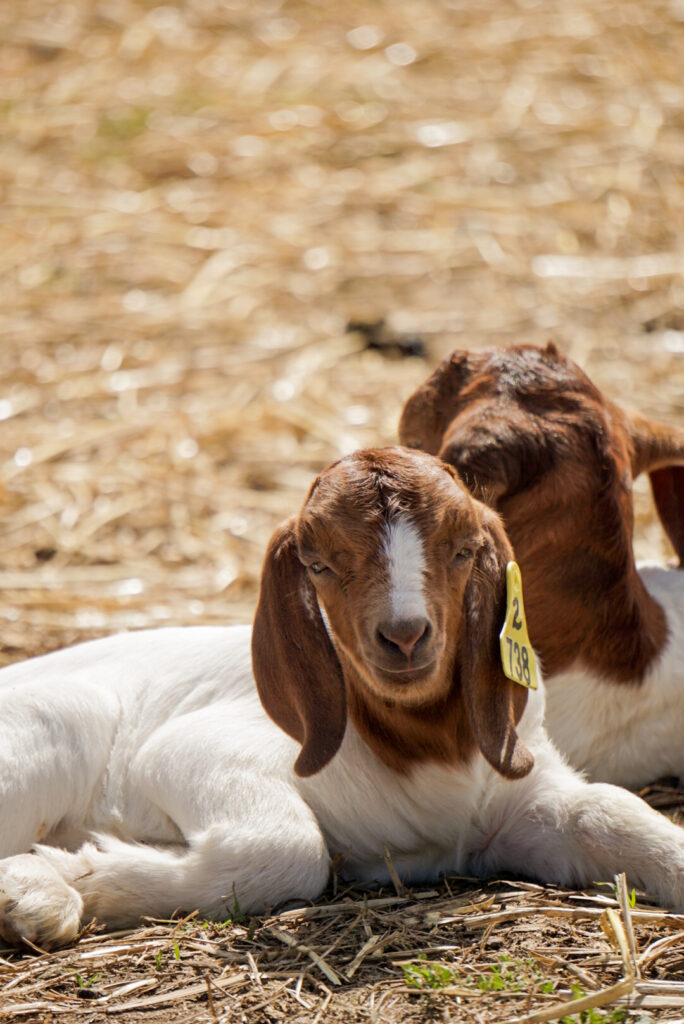
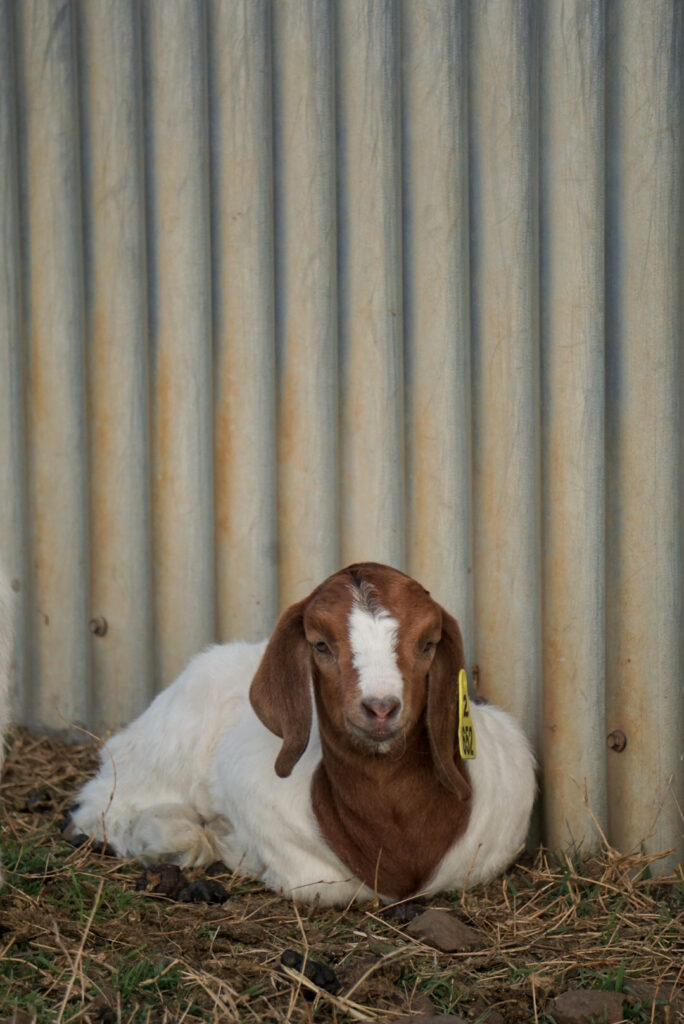
Nutrition
All goats are paddock reared and pasture fed, and receive supplementation in accordance with their stage of production and the pasture situation. Yarrabee Boers are expected to perform in the paddock with loose licks and protein meals being the main supplementary feed supplied. Forage crops of oats in winter, or millet in summer, are grown, if rainfall allows. These provide an excellent source of nourishing grazing to supplement the less digestible dry pasture.
At specific times, extra supplementation in the form of cereal hay, lucerne hay or whole cottonseed may be provided. The critical times occur in the month before kidding, during kidding and lactation, weaning, and when environmental conditions are unfavourable. The prolonged dry periods of recent times, have resulted in a need to supplement all goats at some stage.
Some health issues that emerged in the goats in early 2016 resulted in a copper deficiency being diagnosed. Treatment of all the goats has included delivery of a copper capsule into the stomach (where it slowly releases the copper from the reticulum to the liver). Goats have far higher copper requirements than sheep; something that all small ruminant farmers need to be very aware of.
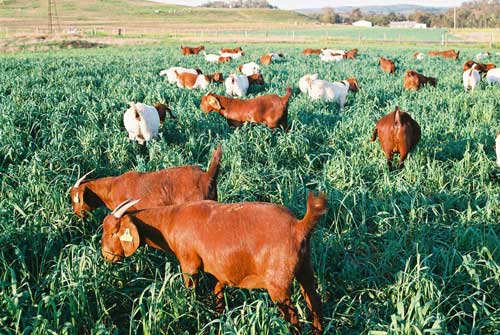
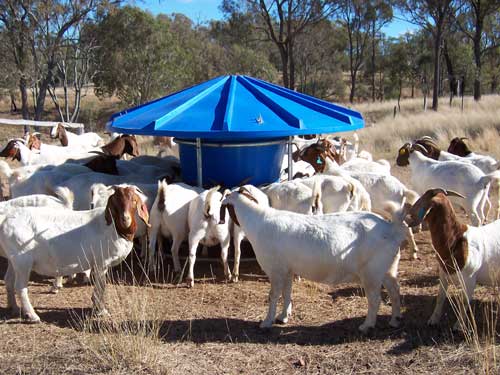
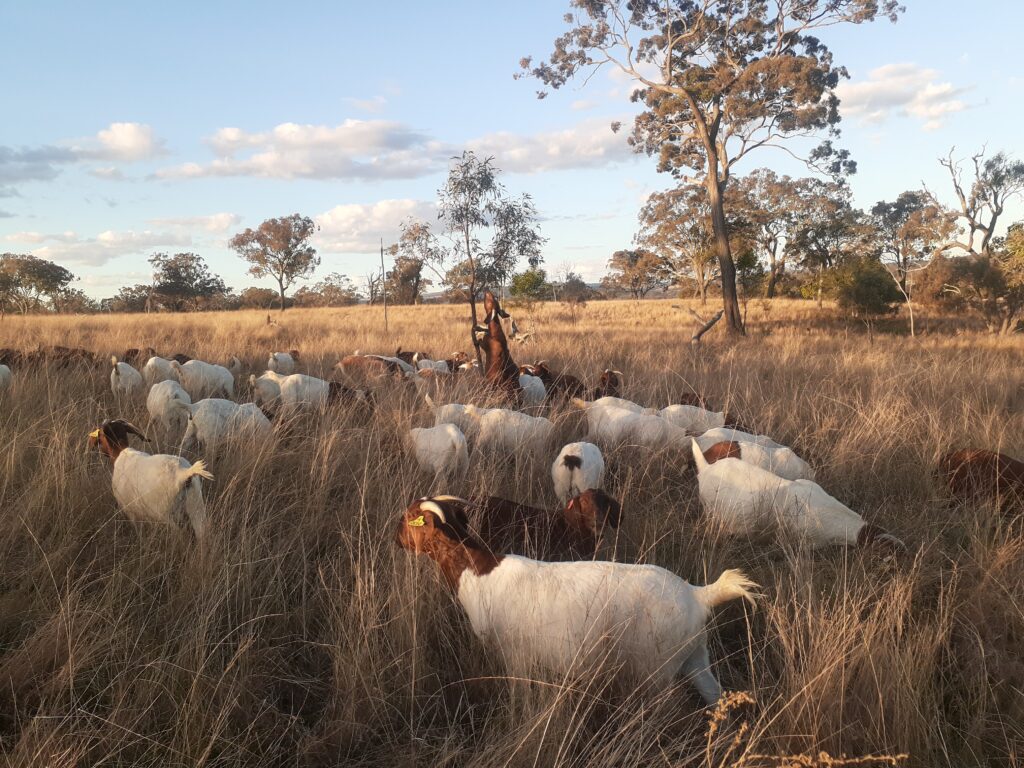
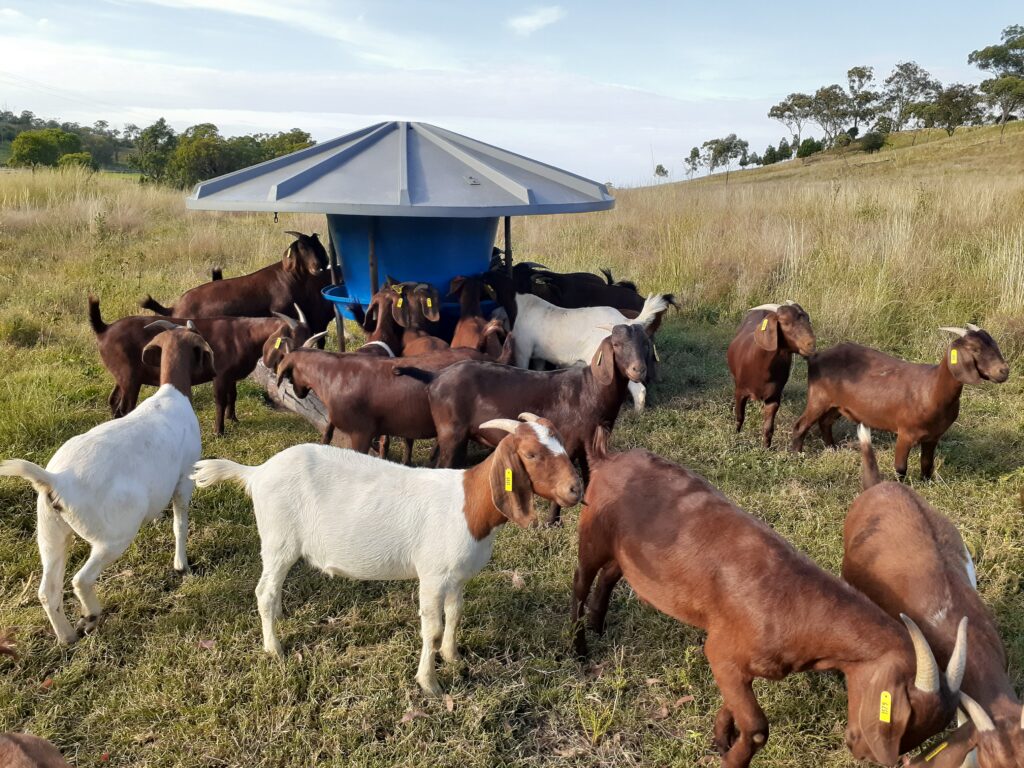
Health
The original breeding stock purchased by the stud, was either acquired from disease free accredited sources, or tested on arrival for the diseases, CRV and Johnes. While not officially accredited free, Yarrabee Boer Goat Stud has a disease free status. A strict vaccination schedule is followed, whereby all introduced goats and kids born at the stud, are vaccinated twice with either Glanvac 3 or Glanvac 6. All goats residing at the stud receive six monthly booster vaccinations.
The management at Yarrabee, ensures that parasites, both internal and external, do not impact on the performance of the goats. Careful attention to stocking rate, pasture rotation, nutrition, and selection for parasite resistant breeding stock, results in healthy goats. While not of organic status, chemical use is kept to a minimum at Yarrabee.
The predominately dry climatic conditions, combined with the variable and sometimes rocky terrain of the farm, positively influence the health of the goats. Hoof problems are also minimized through selection and environment.
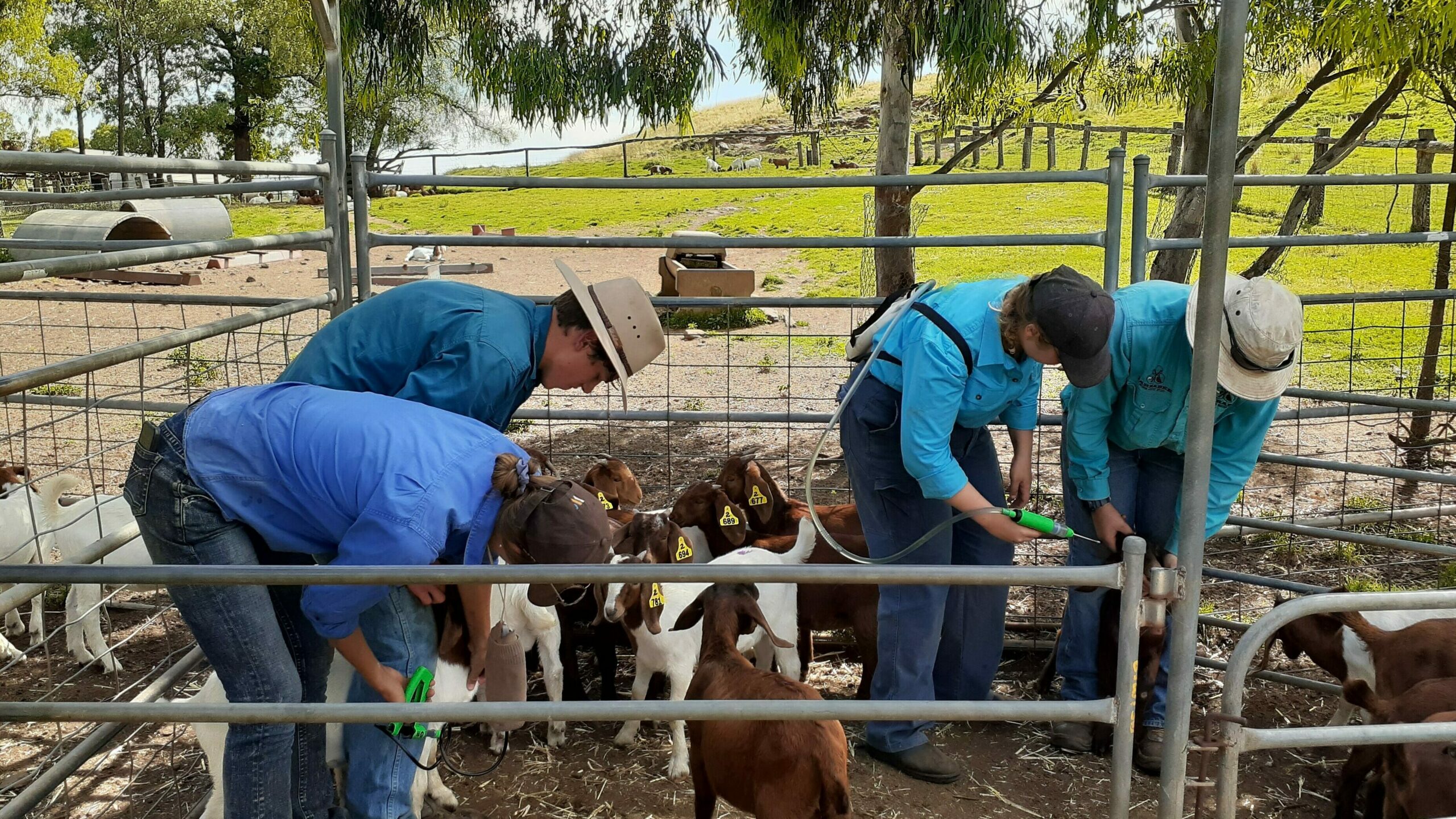
Maremma Guardian Dogs
Maremma dogs are an integral component of the management at Yarrabee. Goat buyers can purchase goats that have experienced running in situations where Maremmas are used as guardians. Without the faithful guardian dogs, the presence of foxes and dingoes in the region, would have a devastating effect on the numbers of kid and adult goats at the stud. The dogs ensure that there are no losses.
